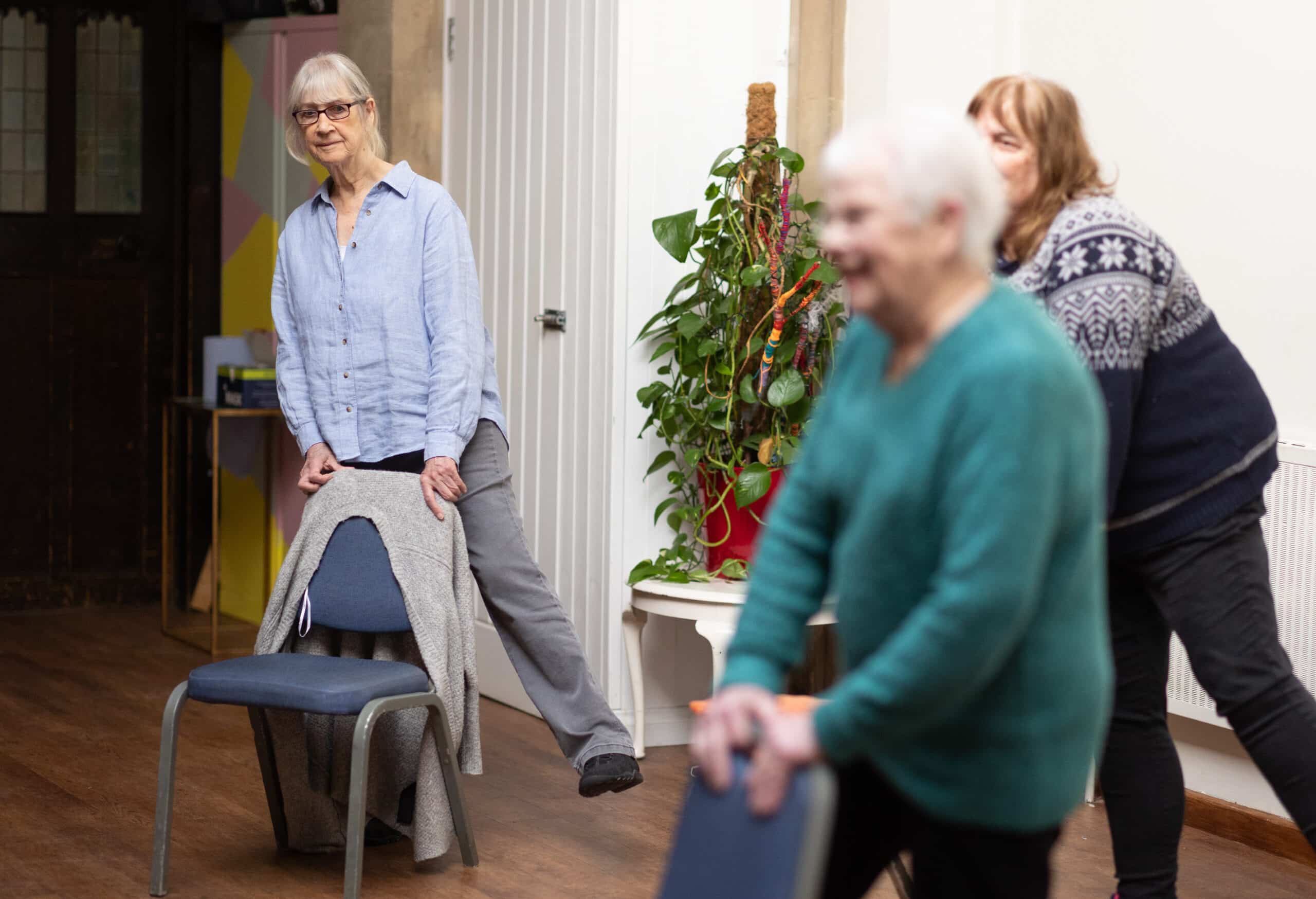Benefits of Dancing For The Elderly
Why Get involved in Dance in Later Life?
According to new research by the University of Leeds, “Regular dance sessions can benefit people over 85 by helping them be physically active, socialise, and reconnect with their younger selves.” Getting involved with any kind of physical activity later in life can be beneficial (after checking with a qualified health professional), however dance seems to particularly benefit both physical and emotional wellbeing. This is because the physical side of dancing can help to ease stiffness and pain, but the social aspects of joining in may be even more important for someone at the risk of social isolation. If you are struggling on your own at home due to the loss of a beloved partner or because friends have moved away, then you’d benefit from having a Helping Hands carer in your home. Because our carers can come to you on either a visiting or live-in care basis, we’re able to design you the perfect package of care to suit your needs. This can range from a visit once a week for a cup of tea or to help you attend your dance class, through to full-time, around the clock support. And because all of our care services are fully regulated by the Care Quality Commission and the Care Inspectorate Wales, you and your loved ones can be confident we’ll deliver what we promise to.

Benefits of Dance
Gentle exercise can benefit everyone, but particularly as we age it’s crucial to keep as active as possible. This can help to ward off age-related joint stiffness that would otherwise keep us sitting in a chair for most of the day, and also give us a valuable social outlet to meet friends, both old and new.
Get moving
As we age it can be tempting to spend more of the day sitting still, especially if age-related frailties are aggravated by movement. Finding an activity that suits your needs and abilities is crucial though, whether that’s joining in a dance class sitting down, going to an aquafit session in the local pool, or dancing around your living room with a group of friends.
Reduce isolation
Getting together with other people is good for our emotional health because, despite what we may tell ourselves, we all need socialisation at times. If you’re living alone then it can be difficult to get out into the community on your own, however by joining an organised activity you can go along with a purpose in mind and hopefully meet like-minded people.
Continue friendships
It doesn’t have to be an officially organised activity that gets us dancing, it could be a group of people deciding that they want to listen to the music they love and the dancing starting organically from there. Listening to our favourite music naturally makes humans want to move rhythmically to the music, indeed dancing was even seen as a way to ward off disease in the Middle Ages!
Great for mental wellbeing
Dancing is a popular hobby, whether it’s for exercise, lifting our moods, or socialisation. Central to dance is music, which elicits an emotional response in humans, as can dancing. In fact, Age UK tells us that “Of all the performing arts, dance is the one that has emerged as the most therapeutic when it comes to staving off the mental and physical ravages of old age.”
How to Get Started In Dance
Dancing is one of the simplest – and cheapest – hobbies available. After all, you need just switch on the radio or play your favourite music and start moving! You can dance around your living room if the feeling grabs you, or attend an organised class if you’d like more structure, but either way your Helping Hands carer will be able to support you to get there, or even join in. Age UK has a search bar on their page so that you can discover what support is offered near you or check social media to see if a local provider has advertised. You could also ask at your local leisure centre if they run classes, or at a lunch club or coffee morning.
How Helping Hands Support Elderly Exercise
Elderly care, help, and support from Helping Hands is available as much or as little as you need us, depending on your personal needs and ability. We offer visits from just an hour a week to help you feel less isolated, whether you’d like to sit and have a cuppa or you’d like someone to go shopping with. We can also help you with your housework, meal preparation, and personal care, or accompany you to your local leisure centre or dance class. Most classes are advertised with an ability level, so whether you’re a former professional or you’ve never danced before, you should be able to get the hang of it. Even if you have two left feet, you’ll still find something aimed at your standard so why not let our carers accompany you, and have fun while you exercise?